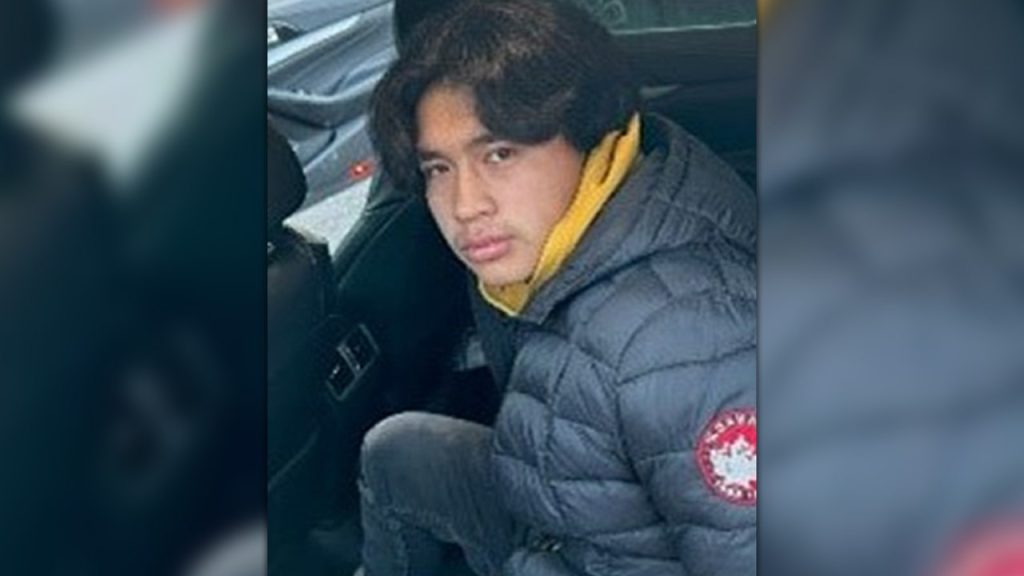On January 30, 2025, a Guatemalan national named Stivenson Omar Perez-Ajtzalan, aged 19, was arrested by Immigration and Customs Enforcement (ICE) in Boston amidst serious allegations of aggravated child rape. The charges stem from an incident in which he is accused of sexually assaulting a minor over ten years younger than himself in Lawrence, Massachusetts. This incident has sparked discussions on immigration policy and its implications on public safety in the state, especially considering the complexities involved with the judicial system’s handling of individuals involved in serious crimes.
| Article Subheadings |
|---|
| 1) Arrest and Charges Against Stivenson Omar Perez-Ajtzalan |
| 2) ICE’s Statement on the Incident |
| 3) Details of the Release and Court Proceedings |
| 4) Massachusetts’ Immigration Policy Context |
| 5) Future Implications and Reactions to the Case |
Arrest and Charges Against Stivenson Omar Perez-Ajtzalan
The arrest of Stivenson Omar Perez-Ajtzalan came as a significant development in the ongoing issues surrounding illegal immigration and crime in the United States. Perez, who entered the U.S. illegally, was taken into custody by ICE’s Boston enforcement team based on allegations of committing aggravated rape of a child. Reports indicate that the alleged victim is over ten years younger than Perez, highlighting the serious nature of the charges against him. This arrest is part of ICE’s ongoing operations to apprehend individuals engaged in illegal activities, particularly those involving violence against minors.
ICE’s Statement on the Incident
Following the arrest, Patricia Hyde, the acting Field Office Director for ICE Enforcement and Removal Operations Boston, commented on the severity of the allegations. Hyde stated that Perez displayed not only a “blatant disregard” for U.S. immigration laws but also engaged in heinous acts against a child. She emphasized that such actions cannot go unpunished, asserting that ICE’s mission is to uphold public safety by removing individuals who pose a threat, particularly those involved in serious crimes like sexual assault. Such rhetoric underscores the agency’s commitment to prioritizing the protection of communities while addressing illegal immigration.
Details of the Release and Court Proceedings
Reports reveal that Perez was initially released back into the community by the court system without any notification to ICE, which complicates the situation significantly. The rapid release prevented ICE from filing a detainer, which is typically a request to hold an individual for deportation proceedings. Observations from multiple news sources suggest that Massachusetts frequently releases individuals charged with serious offenses, creating tension between local law enforcement and federal immigration authorities. The implications of this case raise concerns not only about public safety but also about the judicial protocols in place when dealing with individuals accused of serious crimes.
Massachusetts’ Immigration Policy Context
The situation involving Perez is further contextualized by the broader immigration policy landscape of Massachusetts. The state’s approach has gained notoriety since the election of former President Donald Trump, who advocated for stricter immigration enforcement. Massachusetts leaders, including Governor Maura Healey, have publicly stated their opposition to cooperation with federal immigration authorities. Healey’s administration has expressed a vigorous commitment to protecting residents, which has led to actions that often contrast with federal directives. This case serves as a poignant reminder of the ongoing clash between state and federal immigration policies and the complexities of enforcing laws that intersect with public safety and individual rights.
Future Implications and Reactions to the Case
The arrest and subsequent proceedings involving Stivenson Omar Perez-Ajtzalan have ignited discussions around the future implications for immigration enforcement in Massachusetts. As immigration continues to be a divisive political issue, this case brings to light the possible ramifications for local law enforcement’s role in federal immigration policy. News coverage has highlighted the apparent discrepancies in how individuals charged with or convicted of serious crimes, notably sex offenses against minors, are handled in courts across different states. The reactions from various officials and community members may influence the forthcoming discussions on reforming both criminal and immigration laws to protect vulnerable populations effectively.
| No. | Key Points |
|---|---|
| 1 | A 19-year-old Guatemalan national, Stivenson Omar Perez-Ajtzalan, was arrested by ICE for aggravated child rape. |
| 2 | ICE officials expressed concern over the handling of Perez’s release by the Massachusetts judicial system. |
| 3 | Governor Maura Healey has stated her administration will not cooperate with federal immigration enforcement. |
| 4 | This case highlights ongoing conflicts between state and federal immigration policies. |
| 5 | The incident raises public safety concerns and the potential need for policy reform in Massachusetts. |
Summary
The arrest of Stivenson Omar Perez-Ajtzalan not only underscores the challenges faced by federal immigration enforcement in Massachusetts but also raises significant questions about the intersection of local judicial practices and public safety. As the case develops, it may lead to broader discussions on the direction of immigration policy in the state and the U.S. at large. The controversy surrounding this case illustrates the urgency for reform and collaboration between governing bodies devoted to ensuring the safety of all residents.
Frequently Asked Questions
Question: What charges is Stivenson Omar Perez-Ajtzalan facing?
He is facing charges for aggravated child rape, which involves allegations of sexual assault against a minor over ten years younger than himself.
Question: What is the role of ICE in this incident?
ICE’s role involves the apprehension and removal of individuals who violate immigration laws, particularly those who also commit serious crimes, such as sexual offenses.
Question: How has Massachusetts’ immigration policy affected this case?
Massachusetts’ policies have led to a lack of cooperation between local law enforcement and federal immigration authorities, raising concerns about the rapid release of individuals facing serious charges without notification to ICE.


